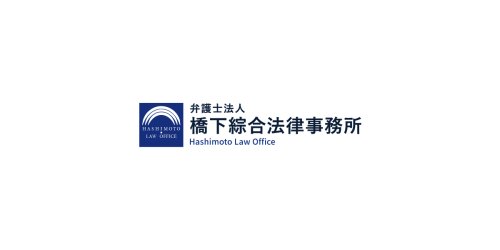Best General Litigation Lawyers in Osaka
Share your needs with us, get contacted by law firms.
Free. Takes 2 min.
List of the best lawyers in Osaka, Japan
About General Litigation Law in Osaka, Japan
General litigation in Osaka, Japan refers to the legal process involving civil disputes brought before courts for resolution. This includes conflicts between individuals, businesses, or organizations over matters such as contracts, property, torts, and other civil rights. Osaka, being one of Japan's largest cities, has a vibrant legal environment with specialized courts and experienced legal professionals. The litigation process in Japan is generally structured, adheres to established procedural rules, and aims for fairness and efficiency in resolving disputes.
Why You May Need a Lawyer
There are many scenarios where individuals or businesses in Osaka might require the services of a general litigation lawyer. Common situations include:
- Contract disputes between companies or individuals
- Property or real estate disagreements
- Personal injury and negligence claims
- Disputes concerning inheritance or wills
- Debt recovery or collection actions
- Employment-related disputes such as wrongful termination or harassment
- Intellectual property conflicts
- Business partnership dissolutions
- Consumer rights issues
- Defamation or privacy violations
A lawyer helps navigate complex legal procedures, ensures that your interests are represented, and may help negotiate settlements outside of court, potentially saving time and resources.
Local Laws Overview
General litigation in Osaka is primarily governed by Japanese national laws, particularly the Civil Code, Code of Civil Procedure, and other related statutes. Osaka's local courts, including the Osaka District Court, handle most general litigation matters. Key points to keep in mind include:
- The civil litigation process usually begins with the filing of a complaint (sosho) in the appropriate court.
- Strict filing deadlines, known as statutes of limitation, apply to many types of claims.
- Most proceedings are conducted in Japanese, and official documents generally need to be prepared in Japanese.
- The court may encourage parties to settle the dispute through mediation or conciliation before proceeding to a full trial.
- Each party is typically responsible for gathering and presenting evidence supporting their claims or defenses.
- Court fees and legal costs are often required upfront, though the losing party may be ordered to pay certain costs after judgment.
- Appeals may be possible if a party is dissatisfied with the outcome at the district court level.
Frequently Asked Questions
What is general litigation in Japan?
General litigation in Japan covers legal disputes that are not criminal in nature, including contract, tort, property, and other civil matters presented in court for resolution.
Do I need a lawyer to file a lawsuit in Osaka?
While you are not legally required to have a lawyer, legal representation is highly recommended due to the complexity of procedures and legal language involved.
How long does a civil litigation case take in Osaka?
The duration varies depending on the case's complexity. Simple matters may take a few months, while more complex or contested cases can extend over a year or more.
How much does it cost to file a case in an Osaka court?
Court filing fees depend on the claim amount. Additional costs include attorney fees, expert fees, and other administrative expenses. It is wise to request an estimate from your lawyer before proceeding.
Can I appeal if I lose my case?
Yes, if you are dissatisfied with a court's decision, you may generally appeal to a higher court, provided the appeal is lodged within the statutory deadline.
Are legal proceedings public in Osaka?
Most civil trials are open to the public, but certain sensitive matters may be heard privately or with limited access to protect privacy.
What happens if the other party does not comply with the court's decision?
If a party refuses to comply with a judgment, you can request enforcement procedures through the court, such as property seizure or wage garnishment.
Is mediation mandatory before going to trial?
Courts often encourage mediation or settlement discussions before proceeding to a full trial, and in some cases, it is a required step.
Can foreigners participate in litigation in Osaka?
Foreign nationals and entities can access the Osaka court system, but proceedings are in Japanese, so translation and legal representation are essential.
How do I choose the right lawyer for my case?
Look for a licensed attorney with experience in your type of dispute, good communication skills, and familiarity with the Osaka legal system. Initial consultations can help determine if a lawyer is suitable for your needs.
Additional Resources
For further information and assistance, consider reaching out to the following resources in Osaka:
- Osaka Bar Association - Offers lawyer referrals and legal consultations
- Japan Legal Support Center (Houterasu) - Provides information and support for legal issues
- Osaka District Court - The main civil litigation court in the region
- Local mediation centers - Provide alternative dispute resolution services
- Osaka Consumer Affairs Center - Offers help with consumer protection matters
Next Steps
If you believe you need legal assistance for a general litigation matter in Osaka:
- Gather all relevant documents and evidence related to your dispute
- Prepare a clear summary of your situation, including key facts and dates
- Contact the Osaka Bar Association, Japan Legal Support Center, or a reputable law firm for an initial consultation
- Discuss your concerns, the potential costs, and the likelihood of success with your lawyer
- Follow your lawyer's instructions on how to proceed, including filing documents or attending mediation, as appropriate
Taking quick and informed action improves your chances of a favorable outcome. Do not hesitate to seek professional legal guidance to protect your interests within the Osaka legal system.
Lawzana helps you find the best lawyers and law firms in Osaka through a curated and pre-screened list of qualified legal professionals. Our platform offers rankings and detailed profiles of attorneys and law firms, allowing you to compare based on practice areas, including General Litigation, experience, and client feedback.
Each profile includes a description of the firm's areas of practice, client reviews, team members and partners, year of establishment, spoken languages, office locations, contact information, social media presence, and any published articles or resources. Most firms on our platform speak English and are experienced in both local and international legal matters.
Get a quote from top-rated law firms in Osaka, Japan — quickly, securely, and without unnecessary hassle.
Disclaimer:
The information provided on this page is for general informational purposes only and does not constitute legal advice. While we strive to ensure the accuracy and relevance of the content, legal information may change over time, and interpretations of the law can vary. You should always consult with a qualified legal professional for advice specific to your situation.
We disclaim all liability for actions taken or not taken based on the content of this page. If you believe any information is incorrect or outdated, please contact us, and we will review and update it where appropriate.












